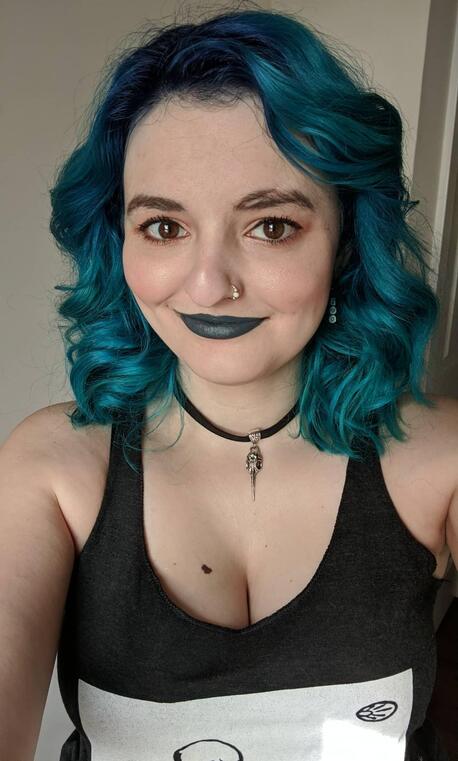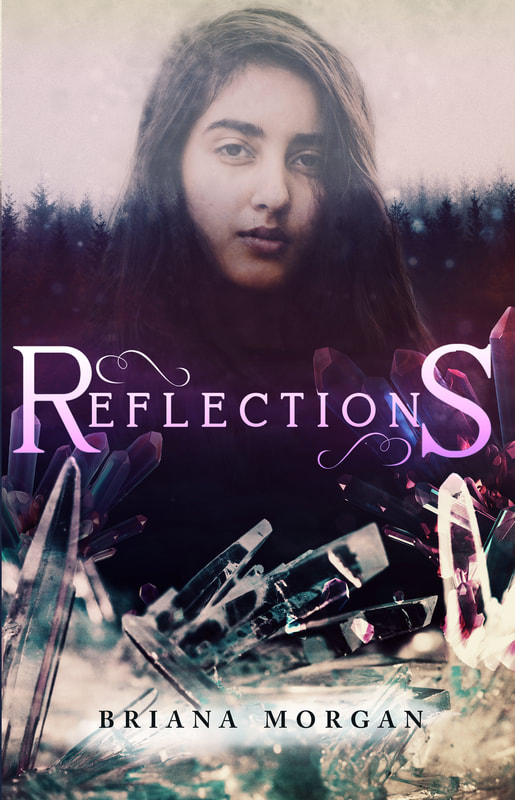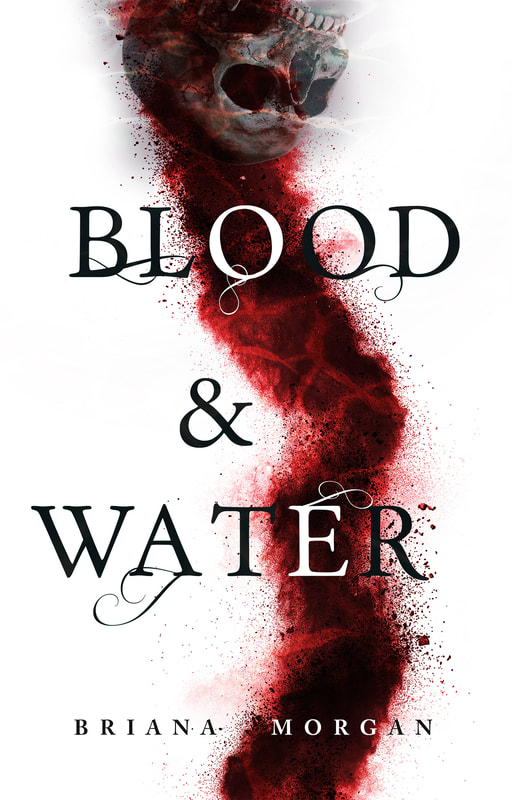|
Briana Morgan is a YA fantasy and horror writer, playwright, coach, and freelance editor. Her works include Blood and Water and Reflections, A Writer's Guide to Slaying Social, and Touch: A One Act Play.  As a lover of writing, what do you enjoy most about the process? What I enjoy most about the writing process is that no two days are ever the same, and neither are two books. Each presents a unique set of challenges to overcome and rewards to reap. Each is satisfying in a new way. As a novelist and playwright is your approach different when writing one or the other? What appeals to you about each form? Each format has its advantages and disadvantages. Certain stories work better as novels full of internal musings and rich description. Others make more sense acted out and left to the whims of a director, producer, actors, and stage manager. I love the depth of worldbuilding that writing a novel allows. To a certain extent, you can also achieve that with a play, but it isn’t quite the same. With plays, the appeal for me mostly lies in stripping a story down to its purest elements (dialogue, characters, emotional beats, etc.). You've written several books, articles, a play on top of being active on YouTube and Instagram—how do you keep up momentum? I also have a day job! Trust me, it’s challenging to keep track of all that. I won’t pretend it isn’t. But luckily, I’ve always been an extensive planner obsessed with making lists. A little forethought and organization helps me fit everything into my life. I schedule content in advance so I spend less time stressing and more time engaging. In an interview with A New Look on Books, you mention that you love writing badass heroines—what's on your checklist for creating strong female characters? It’s hard for me to answer this one because every female character is stronger in a different way. After all, there is no “right” way to be a woman in the world. With that said, I always recommend subverting tropes as much as possible, and focus on making the character human, rather than simply focusing on their femininity. As a plotter, what are your outlines like? Do you find yourself revising or do you stick faithfully to the initial outline? It’s taken me a long time to develop my plotting process, and I’m constantly tweaking my outlines. My structure is loosely based on Blake Snyder’s Save the Cat. I make sure to hit all the big beats and then fill in the gaps, focusing on cause and effect. I’m still learning about outlining and what works best for me though, so I imagine my process will keep evolving along with my knowledge and experience. Rose Therman advises writers, “In the planning state of a book, don't plan the ending. It has to be earned by all that will go before it.” As a panster turned plotter, what are your thoughts on her advice? There’s something to be said about knowing where a story will go while still remaining open to change. Before I write a draft, I have some idea of the ending, a point of reference to work toward. Often this ending changes as I get to know and understand my characters better, and that’s okay. I’m always in favor of a more organic, flexible outline and an ending that does your story and characters justice. With your experience with Blood and Water, do you have any advice for fellow writers on self-publishing? My biggest advice for self-publishing is not to publish until you’re ready. I felt a weird self-imposed pressure while working on my first book, which led to me releasing it much earlier than was probably wise. This also led me to rerelease the book a few years later. I think if I had given myself a little more time, been a little more patient, I wouldn’t have felt the need to do it. That said, I have never regretted my decision to add content and rerelease the book. The new edition is so much stronger than the original work, and closer to my initial vision for the novel. I've heard that in the era of social media the author has to balance being a creator with being a public figure. What are your thoughts?
I agree. I’ve seen authors destroy or seriously maim their careers with poorly worded social media posts, and I advise everyone to remember that what you post on social media will be seen by more people than you can imagine, and people will take you to task for problematic opinions. I don’t say that to discourage people from using social media, but I think it’s important to keep it in mind so you don’t harm your chances of selling books, getting an agent, or anything like that. How would you describe your coaching style? I coach how I like to be coached. I focus on nurturing not only a writer’s current project, but also their future career. I love helping my clients brainstorm goals and strategizing ways to help them achieve their goals. Is there anything else you would like readers to know? I’m also a fiction editor specializing in working with independent authors! For more information about my editing services, visit my website, and send me a message if you have any questions. I also have a YouTube channel where I post new videos about writing, editing, publishing, and social media for authors every Friday. When not writing, you can find me engaging with friends and fans on Instagram and Twitter. Photo Credit: Briana Morgan
0 Comments
Leave a Reply. |



 RSS Feed
RSS Feed